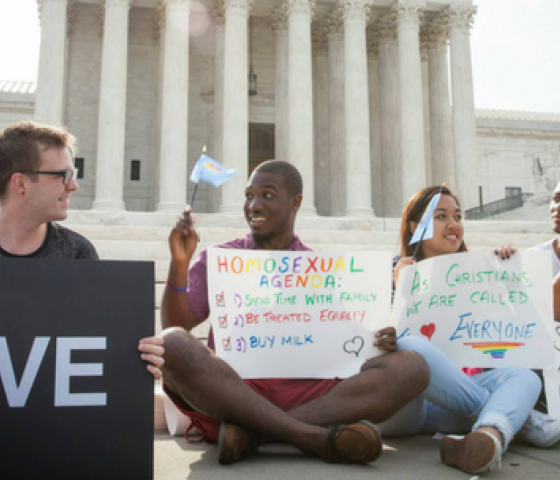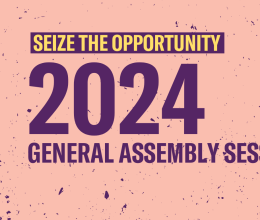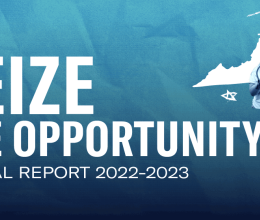UPDATE (3/6/2019): Today, the Department of General Services held a public hearing on a proposed plan to enact permanent rules for rallies at the Lee monument in Richmond. We re-sent it this letter to raise First Amendment concerns about these regulations.
The ACLU of Virginia today released a comprehensive set of recommendations for government agencies struggling with how to regulate free speech in a way that is legal and also protects public safety.
The white paper, “Permitting Protests: Guiding Principles,” was included as part of the ACLU-VA’s comments submitted to the Virginia Department of General Services (DGS) regarding restrictions Gov. Terry McAuliffe has imposed on demonstrations and protests at the Robert E. Lee Monument in Richmond.
“The government sets the rules regulating protests and demonstrations,” the white paper states. “The regulations cannot, however, favor one side over another and must be necessary to protect public safety and order.”
In a letter to DGS, ACLU-VA Executive Director Claire Guthrie Gastañaga referenced the affiliate’s legal recommendations and said the governor and Attorney General Mark Herring are wrong to suggest that the Lee Monument grounds are not a “traditional public forum” in which the public should be able to e ngage in First Amendment protected speech and assembly subject only to narrowly drawn rules.
“Lee Monument has always been used as a public park and a public gathering space which has routinely held large events including protests, rallies, Easter parades, and live music events,” the letter states. “Because it includes a public walkway and grassy area and has been used traditionally as a public park, the Lee Monument grounds are, in fact and law, a public forum and should be regulated as such.”
The letter outlines numerous constitutional issues raised by the governor’s emergency regulations, including concerns that proposals to “grandfather” some events amount to impermissible distinctions based on the content of speech, and that requiring a permit for any demonstration or protest by a group of 10 or more people is overly restrictive and unreasonable.
The ACLU-VA’s white paper recommends 10 guiding principles for permitting public gatherings that would meet constitutional standards for any public forum, including the Lee Monument and Capitol Square as well as public spaces in localities. These include:
- No permitting decisions should be made based on the content of the speech.
- No permits should be required for small groups of less than 20 people or for spontaneous demonstrations held in response to current events.
- Permit applications should be required no more than six days in advance of the planned event, and decided upon within three days.
- Permitting decisions should be made in writing, and denials should include reasons and instructions for filing an appeal.
- Permits may be denied when there is a “well-founded belief based on concrete evidence that the permit applicant will engage in violent or unlawful conduct.”
- Fees should be charged only for costs directly caused by the organizer of an event, not for costs imposed by the reaction to the speaker.
“Our hope is that law enforcement and other officials with permitting authority will use the white paper and guiding principles to ensure protests and demonstrations can occur without unconstitutional restrictions,” Gastañaga said.
The white paper concludes, “[i]n this case, as in so many others, the less government regulation the better, and state and local rules that recognize the right to speak and petition the government without unnecessary limits and requirements will best serve the people’s interest in constitutional governance and government’s interest in serving its people.”





